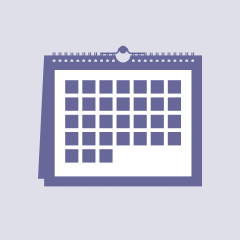Monthly Corner
Keri Culver Blog - October 2025
Faith Njahĩra Wangarĩ's Book Chapter, 2025
Faith Njahĩra Wangarĩ's Book Chapter, 2023
Open Access chapter downloads available..
Faith Njahĩra Wangarĩ ‘Book review - 2022
Nancy Nyutsem Breton and others Publication, 2025“
Khongorzul Amarsana - Publications
- Posttraumatic growth: Experiences of Mongolian and Hungarian survivors of intimate partner violence, By - Khongorzul Amarsanaa, Mónika Kovács & József Rácz
-
Case Study: Effects of the COVID-19 Lockdown Restrictions on Eight Mongolian Single Mothers
- Dessertation -
Shipra and Harshil Sharma Article
Prof Dr Patrice Braun - Co-Author / Publication of OECD Series
Rebecca Calder Sharing - Kore Global Publication
K.R.Shyam Sundar Article
Events
Vacancies
- Ladysmith seeks a Philippines-based consultant to work on a child marriage project. Strong technical skills in micro-simulation and cost-benefit analysis are needed. Please see the attached ToRs for more details.25039%20Philippines%20National%20Consultant%20.doc
UN Women has announced an opportunity for experienced creatives to join its global mission to advance gender equality and women’s empowerment.
The organization is recruiting a Multimedia Producer (Retainer Consultant) to support communication and advocacy under the EmPower: Women for Climate-Resilient Societies Programme.
This home-based, part-time consultancy is ideal for a seasoned multimedia professional who can translate complex ideas into visually compelling storytelling aligned with UN Women’s values.
Application Deadline: 28 November 2025
Job ID: 30286
Contract Duration: 1 year (approximately 200 working days)
Consultancy Type: Individual, home-based
Visit at AEA "Innovative Approaches to Feminist Monitoring and Evaluation"
Event Details

Time: November 14, 2015 from 8am to 9:30am
Location: Addams room
Street: West Tower
City/Town: Hyatt Regency
Event Type: panel, discussion
Organized By: Vital Voices
Latest Activity: Nov 17, 2015
Export to Outlook or iCal (.ics)
Event Description
How can we create democratic, non-hierarchical interactions with implementing partners and beneficiaries while rigorously gathering the necessary data to determine the impact of our interventions? This panel presents three innovative evaluation methodologies that are participant-focused or participant-generated: assessing data quality for measuring the multiplier effect of investing in women leaders: outcome harvesting to determine the extent of advocacy campaigns, and catalyzing participant documentarians to collect qualitative data; data quality assessments of multiplier effects of women’s leadership; and a participant documentarian approach to case study development. The goal of using each methodology is to generate accurate and reliable information about program interventions while diversifying the means by which this data can be collected and shared. From an evaluation perspective, these methodologies expand the type and content of data to be analyzed. From an intervention perspective, these processes teach useful skills to participants. From a feminist perspective, an inclusive data collection process is creating high-quality, democratic, and non-hierarchical interactions.
Comment Wall
Add a Comment
-
Comment by Francis Pitcharan on November 14, 2015 at 13:05
-
I would love to attend but not able to right now. Wish the event goes very well!
-
Comment by Rituu B Nanda on November 13, 2015 at 22:36
-
In your abstract you say- How can we create democratic, non-hierarchical interactions with implementing partners and beneficiaries while rigorously gathering the necessary data to determine the impact of our interventions?
This is very important- to create a space where all voices come through. The challenge is to know whose voice is missing. I will very much miss attending this session but want to hear all about it later. Best of luck!
© 2025 Created by Rituu B Nanda.
Powered by
![]()


RSVP for Visit at AEA "Innovative Approaches to Feminist Monitoring and Evaluation" to add comments!
Join Gender and Evaluation